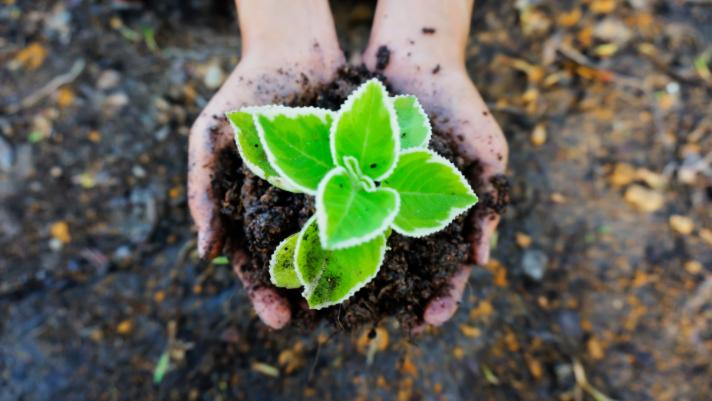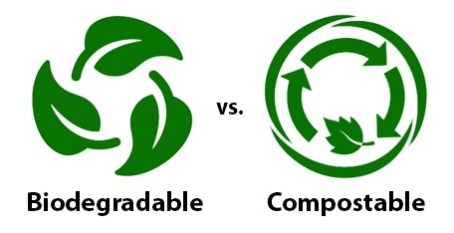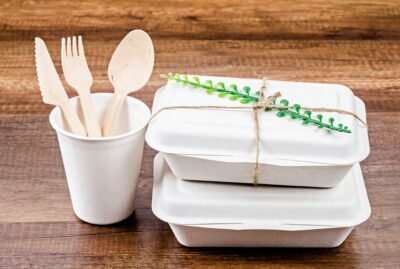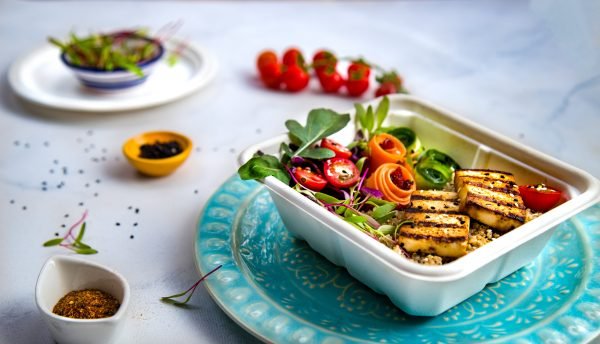Compostable or biodegradable or both? Is one better than the other? Are both the same? If not what is the difference between Biodegradable v/s Compostable? Find out all the solutions to your queries in this article.
In the ever-going search for green and eco-friendly products, we often come across two terms that are widely used- Compostable and Biodegradable. So many products claim to offer disposable tableware that is 100% compostable or biodegradable.
Both the terms are often used interchangeably despite being different. However, both the products are environment-friendly there are few pros and cons associated with these products.
What is Biodegradable?
The word ‘Bio’ means “life”, whereas ‘degrade’ means “to break down” and ‘able’ indicates that it can happen. So in simpler terms, any object that can be decomposed and disintegrated into its original molecule by fungi, bacteria or some other natural biological process is ‘biodegradable’.
It is a process in which nature takes its natural course and break down materials to their component parts. But the matter of fact is that there are lots of things that are biodegradable if given enough time, but the key point here is ‘how much time’?
So when a company mentions ‘biodegradable’ on their products, all they really mean is that it will break down when placed in a landfill, but how long it takes for the products to biodegrade is what makes a difference to our plane. For e.g. Plastic that has a notorious image of not getting degraded will also break down eventually, but it will take decades, which therefore is harmful to our planet.
What is Compostable?
We all or most of us must have heard about the compost heap. What it exactly means is that when you take organic materials and allow it to decompose which then creates fertilizer for your soil, the process is called composting. It is a process of recycling organic waste so that it can be reused constructively again. But in the packaging world, composting means entirely different! When a company mentions “compostable” on their product, it means that the product is compostable if it enters into an industrial composting facility. The difference may look slight, but it is a vital distinction.
Compostable products do not always biodegrade naturally in a landfill. These products need to be placed in the right kind of conditions that are often found in industrial compost facilities. Though compostable products like dinnerware are great for the environment, they need a proper composting facility. For e.g. compostable tableware needs to be dumped in a composting bin for the process of decomposition.
Here are the quick facts about the compostable v/s biodegradable products:
-
- Composting or biodegradation, in both the cases the microorganisms, decompose the products into water, CO2, and biomass.
- Where there are legal requirements for certified products, biodegradation is a natural process, without any legal requirements.
- Biodegradation happens on its own, whereas Composting is human-controlled biodegradation with an aim to fasten the entire process and for the agricultural use of the resulting biomass.
- Any composting process involves biodegradation, but not every biodegradable product needs composting to break down.
- Products that are certified as “Compostable” require the conditions of industrial composting plants in order to decompose and hence do not belong into the backyard compost unless they are specifically certified for home composting.
Both the process of whether – biodegradation or composting have their own pros and cons. Therefore, before purchasing any biodegradable product, do not forget to check the amount of time it will take to degrade. There is a wide range of disposable tableware that is biodegradable as well as compostable too.
So want to green up your acts? Visit www.ecoware.in to check out the widest collection of eco-friendly biodegradable tableware made from sugarcane pulp.







